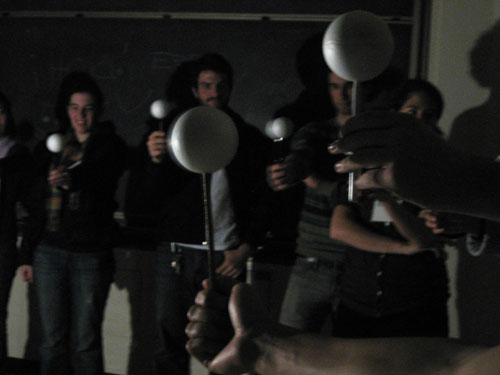
COMMUNICATING SCIENCE © 2011 the Regents of the University of California

There are different ways to consider learners: as “blank slates” open to learning information as it is transmitted to them; or as having clever minds already full of well-reasoned ideas and private explanations that affect how the learner understands new information.
In this session, participants are presented with evidence to support the latter view—that learners enter the classroom with prior knowledge, beliefs, capabilities, and skills, and that understanding and engaging learners’ mental frameworks is critical to helping them accommodate and generalize their ideas. This session provides information about the persistence of privately held views about particular science concepts and what teachers can do to help learners adjust those frameworks in light of new experiences and information in order to deepen their understanding.
As a light-hearted invitation into the topic, the session begins with an exploration of children’s, often humorous, conceptions about love. This also initiates participants’ exploration of children’s ideas about the world, and how these ideas might evolve. Participants then read research cards about teaching and learning and discuss how instruction can be designed in order to apply each piece of research. Participants then experience an exemplar activity modeling a variety of strategies for dealing with students’ alternate conceptions related to Moon phases. After discussing effective teaching strategies from the exemplar, they view a video that illustrates how students can sometimes incorporate elements of new understandings, but still retain their original conceptions in quite ingenious ways.
Throughout this session, participants learn some basic ideas of constructivism, and begin to envision effective constructivist teaching strategies as applied to the classroom.
Session 3: Constructing Understanding (as a PDF)
Session 3: Constructing Understanding (PowerPoint, supplemental)